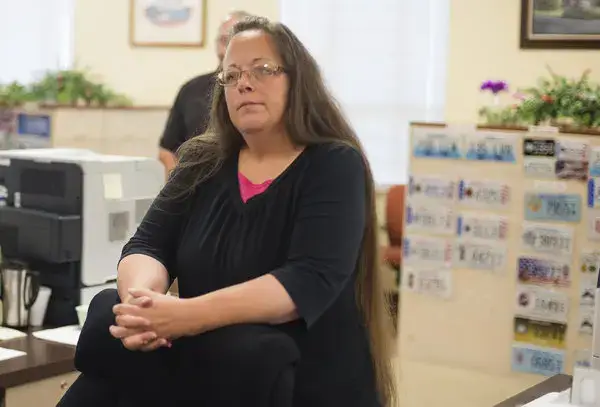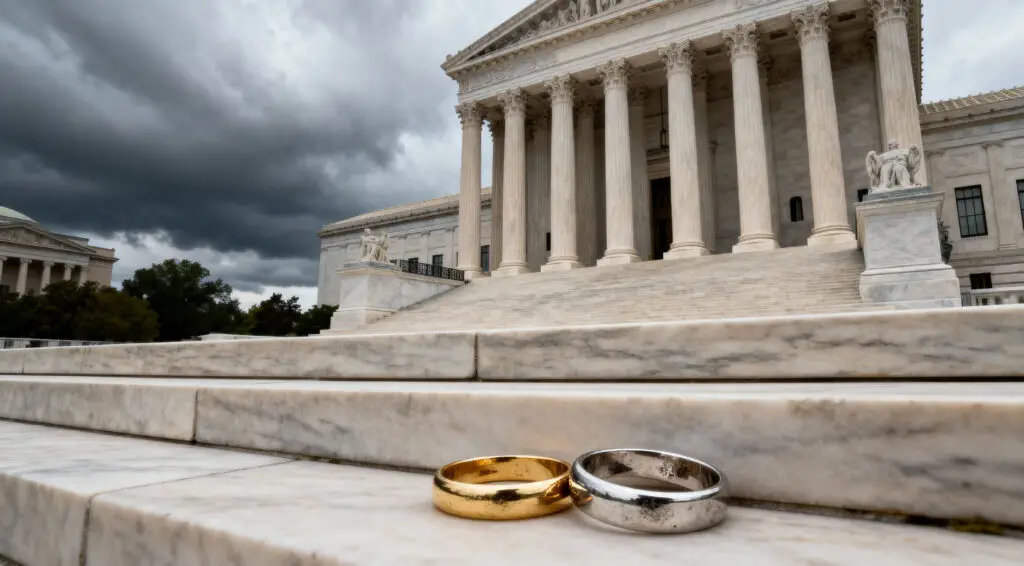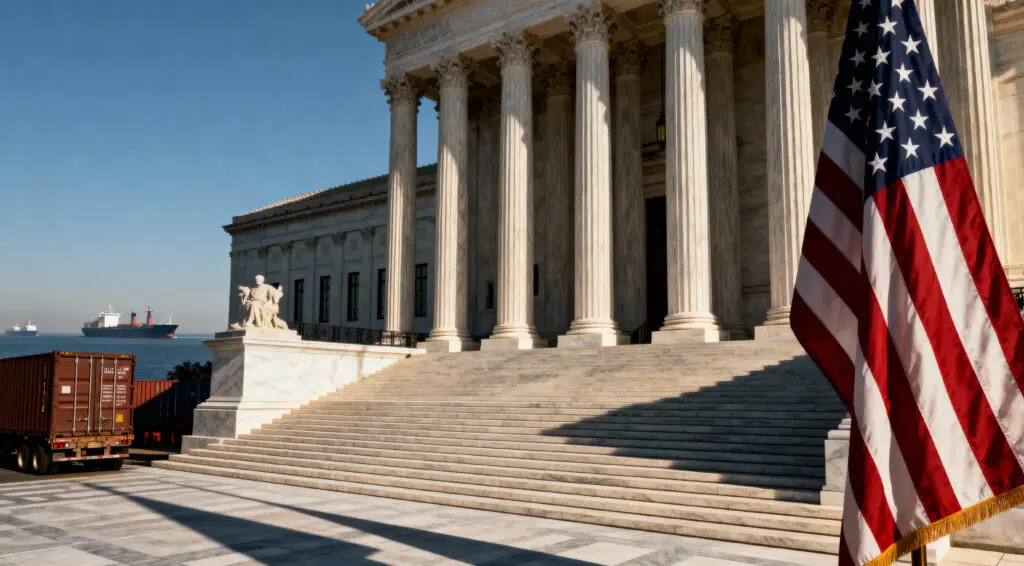Supreme Court Revisits Same-Sex Marriage Precedent
The U.S. Supreme Court is about to look at a petition that might challenge its 2015 decision in Obergefell v. Hodges, which made same-sex marriage lawful across the country. Kim Davis, a former county clerk in Kentucky who refused to issue marriage licenses, filed the appeal to have the verdict completely overturned.
Legal experts think the endeavor is a long shot, but LGBTQ supporters are worried that the court’s more conservative makeup might bring up issues that were supposed to be decided ten years ago. The justices will meet in secret to decide if the matter needs a full hearing.

Source: The New York Times
Background of the Kim Davis Case
After the Obergefell judgment in 2015, Davis refused to give out marriage licenses because of her religious views. Several couples sued her, and federal judges told her to do what they said. She ended up going to jail for not doing what she was told.
Davis’s lawyers are now saying that First Amendment protections keep her from damages and that the original decision should be looked at again. A federal jury had already given the plaintiffs $100,000 in damages, saying that Davis had broken their constitutional rights.
A More Conservative Supreme Court Landscape
The Supreme Court now is very different from the one that ruled in Obergefell. The balance has changed since Justice Anthony Kennedy, who wrote the majority judgment, has retired and Justice Ruth Bader Ginsburg has died. Justices Brett Kavanaugh and Amy Coney Barrett took their places, making the conservative majority even stronger.
Most analysts agree that the court is unlikely to look at same-sex marriage again so soon, despite this change in ideology. Justice Barrett has said that same-sex couples have “very concrete reliance interests,” including establishing a family and getting custody of a kid, which makes it harder to change the verdict.
Recommended Article: Trump Revives Dick Cheney’s Legacy of Expansive Presidency
Justices Signal Caution but Not Consensus
Justice Clarence Thomas has already said that Obergefell should be looked at again because he thinks the judgment was based on the wrong parts of the Constitution. But some conservatives, like Justice Samuel Alito, have called for moderation, saying that even if they don’t agree with the ruling’s rationale, it is still a binding precedent under stare decisis.
Legal experts say that these remarks show that there is no majority interest in reopening the case, even while there are conflicts within the group. The justices may still look at smaller matters, like Davis’s claim for religious immunity, without changing the bigger precedent.
What Public and Political Opinion Does
People’s feelings toward same-sex marriage have changed a lot since 2015. Recent polls suggest that most people from both parties favor the Respect for Marriage Act, which Congress approved in 2022. This law protects both same-sex and multiracial marriages.
Still, groups that support religious freedom are still fighting the decision’s effects on religious institutions. Mathew Staver, the head of Liberty Counsel, said that attempts to reverse Obergefell will happen, stating, “It’s not a matter of if but when.”
Legal Experts Warn Against Complacency
Mary Bonauto, a civil rights lawyer who worked on the Obergefell case, said that the current appeal might be the start of a bigger battle. They point out that conservative legal techniques typically go slowly, such as when Roe v. Wade was overturned in 2022.
Bonauto stressed the need of staying alert and said that civil rights accomplishments must always be protected. “You can never really rest on your laurels because other forces just don’t give up,” she remarked.
What Happens Next for the Court and the Country
The Supreme Court might make its ruling as soon as Monday, or it could wait until the justices have written their opinions. If the appeal is turned down, the Obergefell verdict will still stand, maintaining marital equality across the country.
If the court decides to hear the case, though, it might be the first official challenge to same-sex marriage in ten years. This would bring back one of the most divisive legal and cultural arguments in modern U.S. history. For now, both sides are waiting for the court’s ruling, knowing that it will have effects that go far beyond the actions of one clerk.























